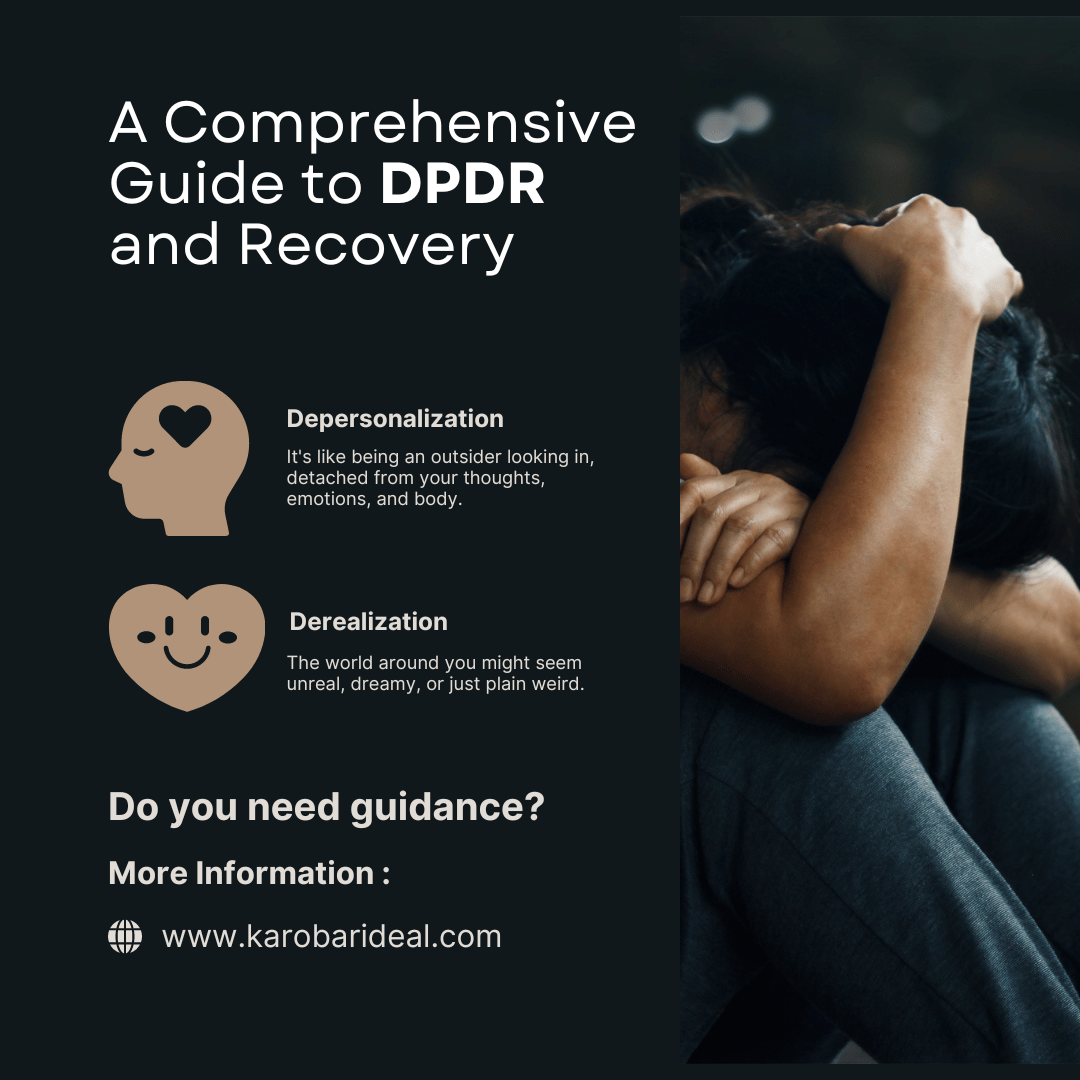An Exploration of DPDR
Ever felt like you were watching your own life unfold from a distance, not quite connected to your body, thoughts, or the world around you? That’s the reality for many people dealing with Depersonalization-derealization disorder (DPDR). It’s like living in a constant fog, where things just don’t feel quite real.
So, what exactly is DPDR?
Well, DPDR is a mental health puzzle that affects about 2% of the population. It’s like a weird form of disconnection – one part makes you feel like you’re just observing yourself (Depersonalization), and the other makes the world around you seem unreal, dream-like, or distorted (Derealization).
But here’s the thing – DPDR isn’t just some mysterious force. It’s recognized by the experts in the Diagnostic and Statistical Manual of Mental Disorders, 5th Edition (DSM-5). It often shows up after a tough time, with trauma being a major player. Sadly, up to half the folks dealing with DPDR have faced abuse, whether it’s from childhood or domestic violence (source: Yang J et al., J Trauma Dissociation, 2023).
This article? It’s your guide to understanding why DPDR happens, what it feels like, and what you can do about it. Plus, we’re diving into the tests designed to untangle the DPDR mystery.
What Triggers DPDR?
- Trauma:
- Tough experiences from the past can act as a trigger, bringing DPDR to the forefront.
- Abuse:
- Shockingly, nearly half of DPDR cases are linked to a history of abuse, including child abuse and domestic violence.
What DPDR Feels Like:
- Depersonalization:
- It’s like being an outsider looking in, detached from your thoughts, emotions, and body.
- Derealization:
- The world around you might seem unreal, dreamy, or just plain weird.
Getting Diagnosed and Treated:
- Diagnosis:
- There’s no DPDR blood test, but mental health pros figure it out through a chat about your symptoms and history.
- Treatment:
- Therapy is the go-to, with Cognitive-Behavioral Therapy (CBT) and talking things out making a real difference. Meds might come into play too.
DPDR Detective Tools:
- Structured Interviews:
- Pros often have a good chat with you to understand how DPDR is affecting you.
- Questionnaires and Self-Reports:
- You might be filling out some paperwork to give the experts a better picture of what’s going on.
In a nutshell, this article is your guide to the DPDR world – what causes it, how it feels, and what you can do about it. Let’s make the fog a little less mysterious together.

